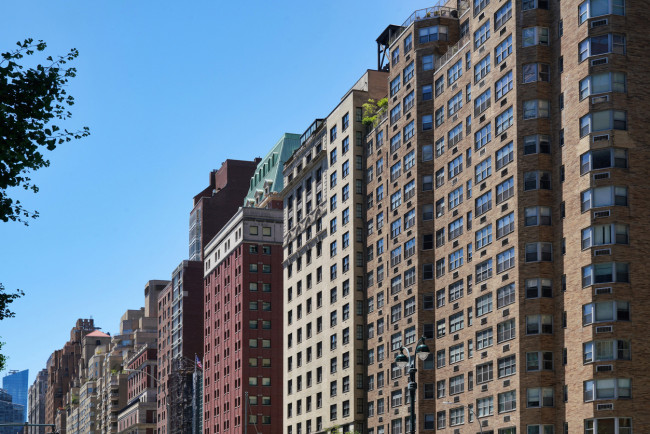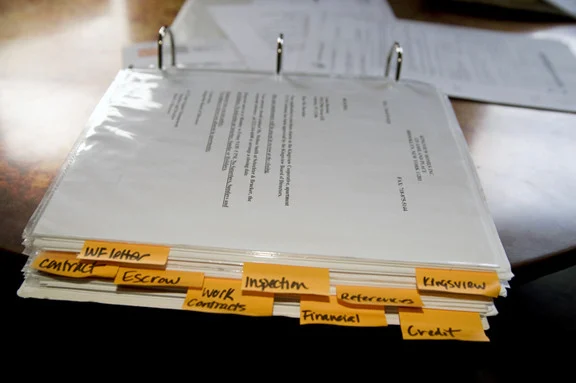What I learned as a first-time co-op owner

Our apartment building in Crown Heights.
Georgia Kral/Brick Underground
When my husband and I bought our apartment, we knew very little about what it meant to buy a co-op. First thing's first: we didn’t buy our apartment, we bought shares in the building cooperative. So there’s that.
The broker selling the apartment asked us a few times if we were ready to move into the small, self-managed building we were looking in. In our interview with the board, we were asked again if we were the kind of people who would play an active role in the building community, which you pretty much have to do in a small co-op and certainly in a self-managed cooperative. We said yes. We wanted the apartment!
And even after all of that, and being approved and closing on the sale, we still didn’t totally get what it meant to be co-op owners.
Here are the most important things we learned—fast.
The board is made up of volunteers who give their time and expertise for the benefit of the building
Let me repeat: volunteers. The people in your building that serve on the board give lots of attention to building matters, and they do it for free. But the reasons they do it are what I found the most compelling. For the most part, in my experience, board members truly care about the building and the community they're serving. They're not on the board just because someone has to be. When I joined, I did it because I wanted to prove that I was a committed person, but also because I wanted my home to be the best it could be.
Which leads me to lesson number 2.
If you want to have impact, and know what's going on, get on the board
For reasons beyond taking a turn and contributing to the building like others before you, joining the board also gives you power. And you only truly understand that once you've been on the board.
Here are just some of the things co-op boards discuss at meetings: apartment sales and potential buyers, problems in individual apartments, the building's finances, maintenance, and upkeep. The board decides where money should be spent and perhaps more importantly, where it shouldn't. The board members control all the improvement projects. That roof deck you've been dreaming about? The board may have already discussed it, and either shelved the discussion or vetoed it straight out. If you're not on the board, this is likely something you wish you had known about.
Even though minutes are available to all shareholders, I never paid attention to them or even thought about the fact that they reported information important for me to know about until I joined the board. And indeed, now that I'm off the board I don't stay on top of reading them, even though I'm aware of all the juicy information they hold.
In a self-managed building, the board is even more powerful
The 15-unit co-op we moved into is self managed, meaning there is no management company to call when you have a problem or spot an issue the whole building needs to address. Nope. Instead you call your neighbors (those on the board) directly. Depending on the content of your call, this can be tricky. Whether or not the call is of a sensitive nature, suffice it to say that board members play a role in your personal life, as well as the building's affairs.
The building staff can be your most important allies
Our building is small. There's no doorman and only a part-time super. That said, my super knows everything about the building and how it functions, and I text him often. Usually the super doesn't work for the shareholders but rather the building as a whole. So he or she won't work for you for free, but may do work for a fee (if the job is minor enough that you don't need board approval), or give referrals to others in the neighborhood. This can prove invaluable, especially considering how much it costs to get a house call from a professional.
My super has helped me with (very) light plumbing projects, carries things up to my fourth floor walk-up occasionally, and has given me names of friends who do auto body work and much more. I've even hired his daughter to babysit.
It's a community, and the staff an important part of it.
Change happens slowly
Just like in government, or any system where many people have a say in how things are done, change in a co-op comes slowly—if it comes at all. Even when something is agreed upon by all shareholders, it can take a long time for it to be put into place. The timing depends on many factors, including how large your building is, how efficient your board and management team are, and even the time of year and workload of vendors. In my self-managed building, for example, we've been planning to hire a landscape architect to design our front gardens for about two seasons now. Everyone agrees we should do it and the funds have been allocated, but life happens, and we're all volunteers.
Embrace the collective structure early
Whether you like it or not, if you live in a co-op you're part of a community and everything you do affects your fellow shareholders. If you can accept this fact from the start, you'll have an easier time adapting to the principles of collective living. No, you can't just blast music late at night and hope your neighbor doesn't call the landlord. No, you can't decide to paint your walls some Saturday, potentially filling the halls with a noxious smell, without first alerting the board and getting permission. Get used to it.
When you respect your fellow shareholders, you'll get respect back, too. And that's what the cooperative is all about.
You Might Also Like



























